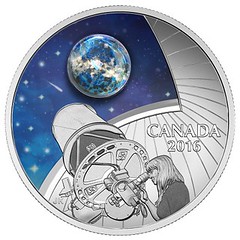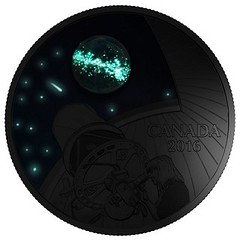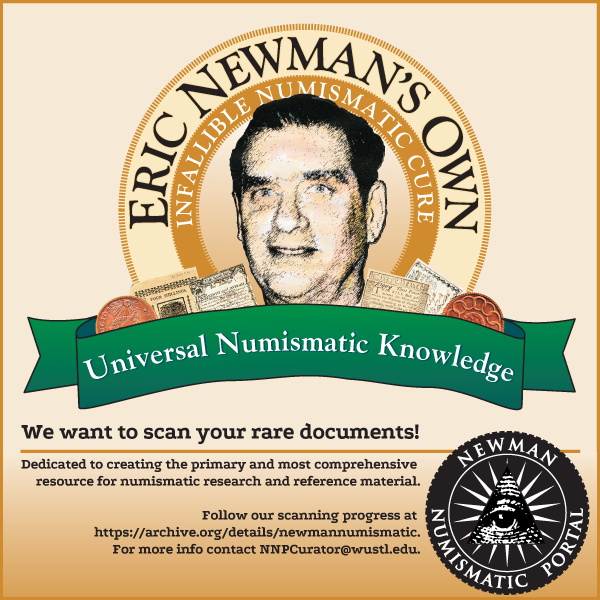
PREV ARTICLE
NEXT ARTICLE
FULL ISSUE
PREV FULL ISSUE
CANADA’S NEW GLOW-IN-THE-DARK COIN
An article by Michael Alexander in the November 27, 2015 Coin Update describes Canada’s new glow-in-the-dark coin. -Editor
 
The Royal Canadian Mint has launched a new coin featuring an important Canadian observatory that achieved international notoriety when it was the location of an incredibly rare sighting of a supernova in 1995. The Burke-Gaffney Observatory, located in the Loyola Residence Tower at Saint Mary’s University in Halifax, Nova Scotia, earned itself this enviable distinction when two Canadian astronomers discovered the supernova in a galaxy 70 million light years away! The coin captures the magic of the event with a borosilicate glass insert. The globule is refined to simulate the effect of gazing through a telescope, with a unique view that can only be created with handcrafted artistry. The coin’s engraved reverse is designed by Canadian artist Joel Kimmel and re-creates the dome of the Burke-Gaffney Observatory as a student looks through the observatory’s telescope. Against the softly colored glow of a clear, star-filled night sky, a unique glass insert captures the beauty of a supernova crafted by borosilicate artist Loïc Beaumont-Tremblay. The crystal-clear globule of boro glass contains an opal that represents the dying star, which is positioned over a darkly colored background and surrounded by wisps of swirled glass and glow-in-the-dark colors. There is a luminous quality to the insert that conveys this stellar explosion of light and energy, which could easily outshine the glow of its own galaxy, if only temporarily. The obverse of each coin depicts the denomination and current definitive portrait of HM Queen Elizabeth II as designed by Canadian artist Susanna Blunt.
A glow-in-the-dark feature is an interesting frill, and one that could go badly wrong in execution. But I think new design features like
this have their place and can enhance a coin when done properly, which to me means using them in a proper design context. If it makes
sense within the coin's subject matter, then by all means use a feature. Colorization, for example, is just tacky when used
gratuitously, but when adding flashes of color appropriate to the depicted scene, it can work very well. I think the glow-in-the-dark
feature works well in the context of the subject of this piece. -Editor
To read the complete article, see:

Wayne Homren, Editor The Numismatic Bibliomania Society is a non-profit organization promoting numismatic literature. See our web site at coinbooks.org. To submit items for publication in The E-Sylum, write to the Editor at this address: whomren@gmail.com To subscribe go to: https://my.binhost.com/lists/listinfo/esylum All Rights Reserved. NBS Home Page Contact the NBS webmaster 
|